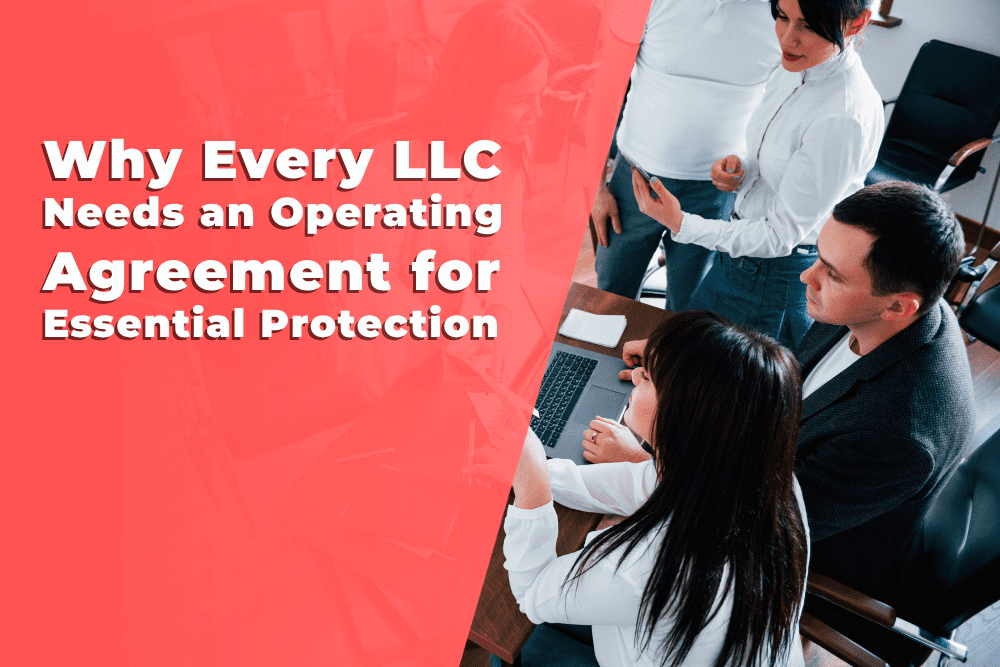Starting a business is exciting, but one of the most important decisions you’ll make is choosing the right tax entity for your business. The choice between forming an LLC, S-Corp, or Partnership will affect how your business operates, how you’re taxed, and even your personal liability. In this blog, we’ll break down the basics of each option in simple terms, so you can decide what’s best for your situation.
What Are LLCs, S-Corps, and Partnerships?
Let’s start by understanding what these entities mean:
1. Limited Liability Company (LLC)
An LLC is like a hybrid between a sole proprietorship and a corporation. It provides limited liability protection to its owners (called members), meaning your personal assets are generally safe if the business faces lawsuits or debts.
Tax Features of an LLC:
- Default Taxation: The IRS doesn’t tax the LLC itself. Instead, the profits and losses “pass through” to the members, who report them on their personal tax returns.
- Flexibility: An LLC can choose to be taxed as a sole proprietorship, partnership, or even a corporation.
2. S-Corporation (S-Corp)
An S-Corp isn’t a type of business entity; it’s a tax election you can choose after forming an LLC or corporation.
Key Features of S-Corps:
- Pass-Through Taxation: Like LLCs, S-Corps avoid double taxation. Profits pass through to the shareholders’ personal tax returns.
- Lower Self-Employment Taxes: Only your salary is subject to Social Security and Medicare taxes, not the entire profit.
- Restrictions: Limited to 100 shareholders, and all must be U.S. citizens or residents.
3. Partnerships
A partnership is when two or more people join forces to run a business. Partnerships don’t pay taxes themselves; instead, profits and losses are shared and reported on the partners’ individual tax returns.
Types of Partnerships:
- General Partnership: All partners share liability and management responsibilities.
- Limited Partnership (LP): Includes general partners (who manage the business) and limited partners (who invest but aren’t involved in day-to-day operations).
- Limited Liability Partnership (LLP): Offers liability protection for all partners.
You may also like to read:
Why Every LLC Needs an Operating Agreement for Essential Protection
Starting an LLC (Limited Liability Company) is an exciting step for any entrepreneur. It’s flexible, provides personal asset…
Read More

Pros and Cons of Each Entity
LLC
- Pros:
- Flexible taxation options.
- Limited personal liability.
- Easy to set up and manage.
- Cons:
- Self-employment taxes can be high without an S-Corp election.
S-Corp
- Pros:
- Lower self-employment taxes.
- Pass-through taxation avoids double taxes.
- Cons:
- More rules and paperwork.
- Restrictions on shareholders.
Partnership
- Pros:
- Easy to form with minimal costs.
- No corporate-level taxes.
- Cons:
- Partners are personally liable for business debts.
- Profit-sharing could cause disagreements.
How to Decide: Key Questions to Ask
When choosing the right tax entity for your business, consider these questions:
- How important is personal liability protection? If protecting your personal assets is a top priority, an LLC or LLP may be better than a general partnership.
- Do you want to save on self-employment taxes? S-Corp election can reduce these taxes but requires stricter compliance.
- What’s your long-term plan? If you plan to grow and add investors, consider an entity that allows for easy ownership changes.
IRS Forms You’ll Need
Here are some forms and IRS links that can help you:
- LLC Formation: Form 8832 – Entity Classification Election
- S-Corp Election: Form 2553 – Election by a Small Business Corporation
- Partnerships: Form 1065 – U.S. Return of Partnership Income
The Role of Quarterly Taxes
No matter which entity you choose, you’ll likely need to pay quarterly estimated taxes. These are payments to the IRS to cover your income tax and self-employment tax throughout the year.
Consulting a Professional
While this guide provides a starting point, every business is unique. Consulting a tax professional can help you understand your specific situation and ensure you’re choosing the right tax entity for your business.
Final Thoughts
Deciding between an LLC, S-Corp, or Partnership is a crucial step for any business owner. Understanding the benefits, drawbacks, and tax implications of each option can save you money and protect your personal assets. Take the time to weigh your options and seek advice if needed to ensure you’re setting your business up for success.




